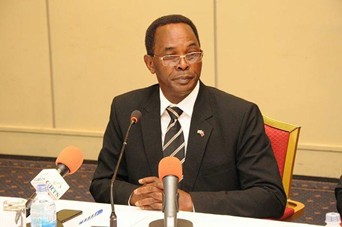
However, the scope of such tax collection can be widened and sometimes to cushion its effects on the purchasing power of the people and investment possibilities for the country. For instance, knowing the current situation of the global petroleum industry, the government should be able to reduce pump prices of fuel from its current fix at D82 - D84.50. This will in turn reduce transportation prices in the country and enable greater access by transport owners. The Labour laws are not aligned with Immigration laws. Many foreign owned businesses have large employees from their home countries for jobs that Gambians can be doing. These employees pay minimal amounts for Aliens and residential permits to avoid paying for higher taxes such as expatriate fees. It is either for the employers of such foreign workers to pay more for denying citizens of employment opportunities or for such foreign employees to pay expatriate fees. A market survey in this regard will reveal that some shops owned by foreigners have in their employment 5 - 6 nationals of their home countries in jobs that could have been given to citizens who continue to cry over unemployment. We are our own enemies by allowing such a situation to exist in our country. The same situation of paying no taxes or little taxes by the large pool of West African migrants in the country who are exerting considerable pressures on our social services. Since the immigration fees for alien and residential permits are one time payment for a year, the current fees are unreasonably low. Gambians at home pay more taxes than these foreigners, a contradiction in the tax system that should be redressed by the government institutions responsible for Labour, immigration and Revenue Collections. Moving on the domestic resource mobilisation, it must be stated that the political economy of taxation requires delicate balancing. The realities of the economic environment matters in policy decisions as some aspects carry political ramifications which cannot be sidelined in the agenda for development. Imagine a shopkeeper who sells rice. If the government raises its taxes, he may increase the price of rice to recover his costs. Customers buy less, his sales fall, and he hires fewer workers. That is how high taxes can hurt both consumption and employment. If the government gives tax exemptions to rice importers, they have no excuses to sell rice at higher prices causing hardship on the ability of the people to buy rice. The economic exploitation in this business means cheating and denying the state of its revenue collections. This is happening in respect of rice and other exempted imports and locally produced commodities and goods causing loopholes in revenue collections. A vigilant market survey and enforcement of the law on taxes are necessary for economic recovery and to lessen public outcry about the high cost of living in the country. The bread and butter issue could be a threat to political stability and to the downfall of a regime. This brings to question, how do taxes link to inflation and purchasing power. Taxes affect prices and people’s purchasing power. If indirect taxes(like VAT and Sales taxes) are high, goods become more expensive. If corporate taxes are high, companies push up prices and reduce wages. Inflation control is important but if taxes and interest rates both squeeze people at once, the economy slows down, people consume less and businesses produce less. The issue therefore, becomes people’s access and affordability to goods and services in the country. Perhaps, therefore, in addition to the Annual Tax Payers dinner in which tax payers are recognized, there should a meeting once or twice a year between the Tax authority and the business community to review the economic situation of the country and the sociological position of the people and to understand what serves as reasonable in tax collection for development and taxes for investor confidence and attractions in participation in not only in the development process but in some kind of reasonable business profitability.
The Commissioner General was absolutely right when he said on West Coast Radio that The Gambia is a tax- based economy and taxes will always remain the backbone of government revenues. But our development needs far exceed what taxes alone can provide. We must therefore, necessarily broaden the resource base. In addition to the remittances which already contribute significantly to our GDP, we can mobilise funds from several other channels. For example, by attracting Foreign Direct Investments in agriculture, tourism, fisheries, energy, manufacturing, ICT, food processing and packaging and so forth. By this way, we bring in capital and skills without burdening tax payers. Through Public Private Partnerships, Power Purchase Agreements, BoT, etc we can finance large infrastructure projects such as roads, ports, railways, river transports, five star hotels, football stadium in all regions, Assembly plants, oil and gas platforms and many others, just as many countries in the region have successfully done. Of course, this initiative requires proactive foreign policy backups in the context of economic diplomacy. We must increase domestic production and exports and intensify international cooperation to attract high value foreign investments and foreign exchange earnings into the country. We cannot remain a tax-based economy when we have the capacity to think hard and to leverage on the possibilities that exist in the international environment. Hardwork makes the country flourish and waiting for handouts harms the country.
The country must exercise caution in accepting dictates from donor partners on how much taxes to raise to supplement their external inputs. A poor country must be concerned about the welfare of its citizens and therefore, apply breaks to overtaxation which leads to economic hardships of the poor and vulnerable in society. This is not a developed economy and the realities on the ground are not the same as in developed economies. How can a developed economy develop a developing economy through the prescriptions of increased domestic taxes. In this situation, we are delaying our economic growth and furthering our economic dependence. The development compromise should be attacking the productive sectors of the economy such as agriculture, fisheries, tourism, manufacturing through development assistance from development partners to enhance sufficient domestic consumption and exports to bring in the much needed foreign exchange reserves for national development. Enhancing revenue generation for the country cannot be mainly focused on tax collections but on external inputs that will increase the scope of resource mobilisation for development of the country. It is in our strategic economic interest for a new policy shift towards revenue generation. It is to be noted that remittances accrued to the country far exceeds donor inputs per year and there are no conditions attached to the money. Donor conditions must therefore, be aligned with the best economic possibilities of the country and bearing in mind the income levels of the people and the market situation.
The welfare and concerns of the people should receive priority attention in policy decisions on taxation and in the development process. Even in developed economies like the U.S.A., workers are given tax refunds to cushion the effects of taxation in the year and to enhance the earning capacity of the Labour force.
BY D M. Badjie
Political Scientist / Commentator





